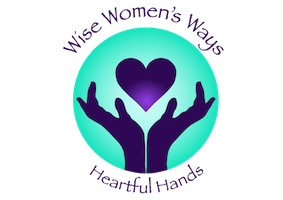What is hypothyroidism?
Hypothyroidism refers to any state in which thyroid hormone production is below normal. There are many disorders that result in hypothyroidism that may directly or indirectly involve the thyroid gland. Since the thyroid hormone affects growth, development and many cellular processes, inadequate thyroid hormone has widespread consequences for the body.
Looking at this from an acupuncture perspective, it is a straight Yang deficiency problem.
As this gets worse, accelerated aging happens. It is easy to change if you change your habits.
Symptoms of hypothyroidism
The symptoms of hypothyroidism are often subtle. They are YANG depleted -there feels as though there is not enough of you to go around . . lie in your life. They are not specific, which means they can mimic the symptoms of many other conditions. People with mild hypothyroidism often have no symptoms. It is very easily checked – not by blood tests as the parameters of ‘normal’ are way too large.
The most reasonable way is to check the symptoms below and if you wonder – take your vaginal temperature first thing in the morning if you are female, or rectal if male. BBT more here
Men – and those without a menstrual cycle should be 36.6/8 after at least 4 hours sleep before they get up and first thing when awakening. For women it alters as per the time of the cycle – 36.6/7 from day 1 – till ovulation wen it should dip to 36.2/3 and then rise to over 37 till a day before the period starts, when it should drop back to 36.6/7 again.
Symptoms of hypothyroidism generally become more obvious as the condition worsens. Common symptoms include:
- Fatigue
- Depression
- Modest or gradual weight gain, inability to lose weight regardless of efforts
- Cold intolerance
- Excessive sleepiness
- Dry, coarse hair or loss of hair
- Constipation
- Dry skin
- Muscle cramps
- Increased cholesterol levels
- Decreased concentration
- Vague aches and pains
- Swelling of the legs, generalised fluid retention
- endometriosis and extreme uterine bleeding disorders
As the disease becomes more severe, there may be puffiness around the eyes, a slowing of the heart rate, a drop in body temperature and heart failure. In its most profound form, severe hypothyroidism may lead to a life-threatening coma. This condition requires hospitalization and immediate treatment with thyroid hormones given by injection. If left untreated, hypothyroidism can lead to an enlarged heart, worsening heart failure and an accumulation of fluid around the lungs.
Sometimes the other nutritional deficiencies that have lead to the low thyroid are not picked up – please look to Magnesium deficiency areas.
How is hypothyroidism ‘treated’?
FIX WHY YOU HAVE IT. Hypothyroidism is generally treated with iodine and/or nutritional work to improve the thyroid function. This sometimes means taking medication to support thyroid hormones.
How is iodine deficiency ‘treated’?
Once iodine deficiency is diagnosed, commonly replacing iodine works well.
IF you have access to bio available selenium – to unlock the T4 to become T3.
What foods contain iodine?
In most countries, iodine is added to table salt so it is the primary food source of iodine. Iodine is also widely available in the following foods:
- Seafood
- Cod
- Sea bass
- Haddock
- Perch
- Kelp
- Dairy products
- Plants grown in soil rich in iodine
What are the recommended (MEDICALLY) daily allowances for iodine?
Likely written up to prevent dying – not to promote LIFE The following are the recommended daily allowances for iodine: VARIES dependent on who you are and where in your life cycle – PLUS if you have a huge depletion – as most do. Hence the loss of health and vitality.
- Infants 40 – 50 micrograms
- Children
- one to three years 70 micrograms
- four to six years 90 micrograms
- seven to 10 years 120 micrograms
- 11+ years 150 micrograms
- pregnant women 175 micrograms
- lactating women 200 micrograms
- adult men & women 100 – 200 micrograms
Please note that seaweed and sea foods will help greatly and the easiest thing to do is to incorporate seaweed in your daily diet. How many fat Japanese people (not sumo wrestlers) do you see? They averagely eat 100 times the RDA and they are well.
Because iodine cannot be stored for long times in the body, tiny amounts must be consumed regularly, but food grown in iodine-poor soil will not provide sufficient dietary iodine. Most people, however, are able to meet their iodine requirements by eating seafood, seaweed, iodized salts and plants grown in iodine-rich soil.
